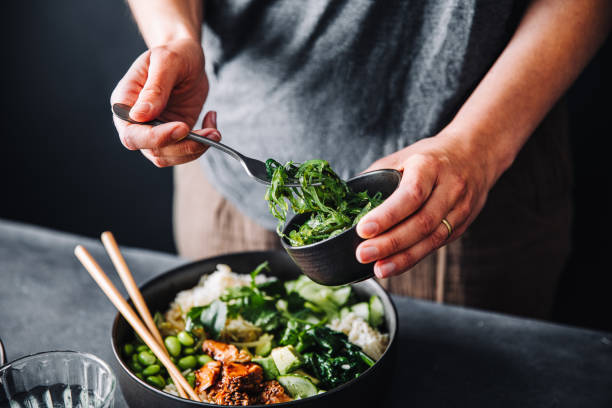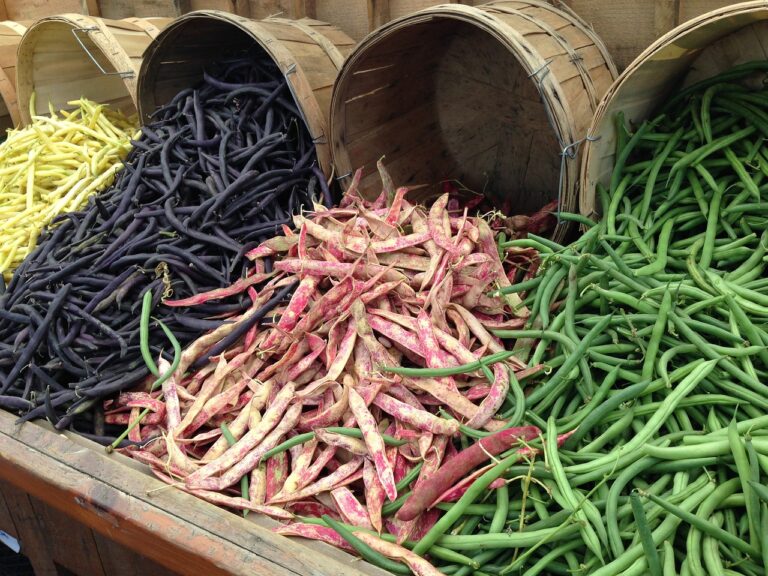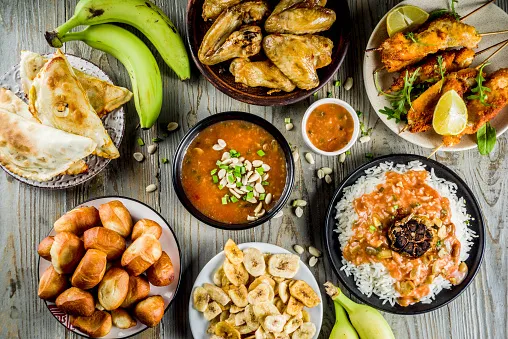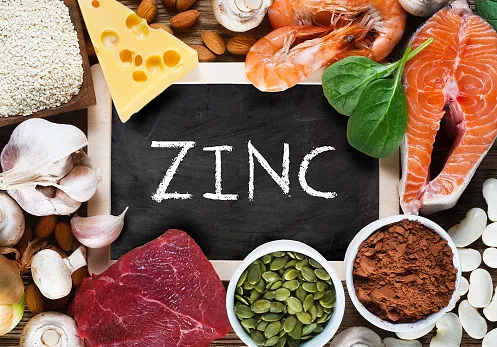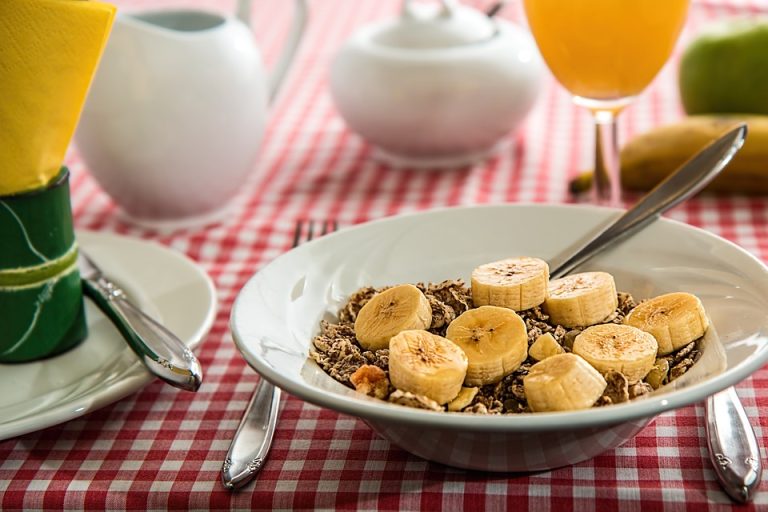10 Nutritious Calorie-Dense Foods In Nigeria
Nutritious, calorie-dense foods in Nigeria are important for maintaining good health and meeting the body’s energy needs. Calorie-dense foods in Nigeria are those that provide a high number of calories in a relatively small serving size.
These calorie-dense foods in Nigeria can be particularly beneficial for people who need to gain weight or maintain their weight, as well as for athletes and other active individuals who have high energy needs.
There are a variety of nutritious, calorie-dense foods in Nigeria that are commonly consumed as part of the traditional diet. These calorie-dense foods in Nigeria include plantains, cassava, yams, rice, beans, nuts, groundnuts, palm oil, coconut, and avocado. Each of these foods provides a range of essential vitamins and minerals, as well as calories to help support energy needs.
In this article, we will provide more information on these 10 nutritious, calorie-dense foods in Nigeria. It’s important to consume these foods in moderation as part of a balanced diet and to consider any potential allergies or sensitivities you may have to certain foods.
10 Nutritious Calorie-Dense Foods In Nigeria
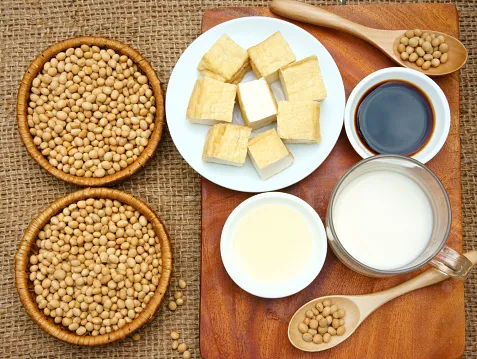
Plantains
Plantains are a type of tropical fruit that are similar to bananas but are larger and have thicker skin. They are typically cooked before they are eaten and are often used as a staple food in many parts of Africa. Plantains are a good source of complex carbohydrates, which provide sustained energy and help regulate blood sugar levels.
They also provide a range of essential vitamins and minerals, including potassium, which is important for maintaining healthy blood pressure and heart function, and vitamin A, which is important for maintaining healthy vision and immune function. Plantains are also high in calories, with about 122 calories per 100 grams.
Cassava
Cassava is a starchy root vegetable that is native to South America but is widely cultivated and consumed in many parts of Africa, including Nigeria.
Cassava is a good source of energy and provides a range of essential vitamins and minerals, including vitamin C, which is important for maintaining healthy skin and immune function, vitamin B6, which is important for maintaining healthy brain function, and potassium, which is important for maintaining healthy blood pressure and heart function. Cassava is also high in calories, with about 112 calories per 100 grams.
Yams
Yams are a type of root vegetable that is native to Africa and are widely cultivated and consumed in many parts of the continent, including Nigeria. Yams are a good source of complex carbohydrates, which provide sustained energy and help regulate blood sugar levels.
They also provide a range of essential vitamins and minerals, including vitamin C, which is important for maintaining healthy skin and immune function, potassium, which is important for maintaining healthy blood pressure and heart function, and vitamin B6, which is important for maintaining healthy brain function. Yams are also high in calories, with about 116 calories per 100 grams.
Rice
Rice is a staple food in many parts of Nigeria and is a good source of energy. It is high in calories, with about 130 calories per 100 grams, and provides a range of essential vitamins and minerals, including vitamin B1, which is important for maintaining healthy nerve function, vitamin B3, which is important for maintaining healthy skin and digestion, and potassium, which is important for maintaining healthy blood pressure and heart function.
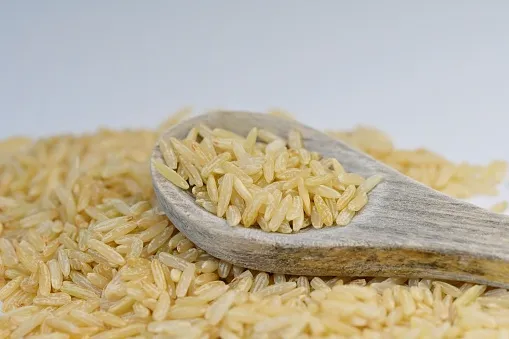
Beans
Beans are a type of legume that is widely cultivated and consumed in many parts of Africa, including Nigeria.
Beans are a good source of protein, which is important for maintaining healthy muscles and tissues, and provide a range of essential vitamins and minerals, including iron, which is important for maintaining healthy red blood cells and oxygen transport in the body, zinc, which is important for maintaining a healthy immune system, and vitamin B6, which is important for maintaining healthy brain function. Beans are also high in calories, with about 128 calories per 100 grams.
Nuts
Nuts are a type of tree seed that is high in healthy fats and protein. They are a good source of essential vitamins and minerals, including vitamin E, which is important for maintaining healthy skin and immune function, magnesium, which is important for maintaining healthy bones and energy metabolism, and zinc, which is important for maintaining a healthy immune system.
Nuts are also high in calories, with about 567 calories per 100 grams of almonds and about 718 calories per 100 grams of macadamia nuts.
Groundnuts
Groundnuts, also known as peanuts, are a good source of healthy fats, protein, and essential vitamins and minerals, including vitamin E, which is important for maintaining healthy skin and immune function, magnesium, which is important for maintaining healthy bones and energy metabolism, and zinc, which is important for maintaining a healthy immune system. Groundnuts are also high in calories, with about 567 calories per 100 grams.
Palm oil
Palm oil is a type of vegetable oil that is obtained from the fruit of the oil palm tree. It is a good source of healthy fats and provides a range of essential vitamins and minerals, including vitamin E, which is important for maintaining healthy skin and immune function.
Vitamin A, which is important for maintaining healthy vision and immune function, and iron, which is important for maintaining healthy red blood cells and oxygen transport in the body. Palm oil is also high in calories, with about 884 calories per 100 grams.
Coconut
Coconut is a type of fruit that is obtained from the coconut palm tree and is widely consumed in many parts of Africa, including Nigeria.
Coconut is a good source of healthy fats and provides a range of essential vitamins and minerals, including vitamin E, which is important for maintaining healthy skin and immune function, iron, which is important for maintaining healthy red blood cells, and oxygen transport in the body.
Magnesium is important for maintaining healthy bones and energy metabolism. Coconut is also high in calories, with about 354 calories per 100 grams.
Avocado
Avocado is a type of fruit that is native to Central and South America but is widely cultivated and consumed in many parts of Africa, including Nigeria.
Avocado is a good source of healthy fats and provides a range of essential vitamins and minerals, including Vitamin E, which is important for maintaining healthy skin and immune function, vitamin K, which is important for maintaining healthy blood clotting and bone health, and potassium, which is important for maintaining healthy blood pressure and heart function. Avocado is also high in calories, with about 160 calories per 100 grams.
It’s important to note that while these foods are nutritious and calorie-dense, it’s still important to consume them in moderation as part of a balanced diet. It’s also important to consider any potential allergies or sensitivities you may have to certain foods and to speak with a healthcare professional if you have any concerns.
Conclusion
A nutritious, calorie-dense diet is important for maintaining good health and meeting the body’s energy needs. There are a variety of nutritious, calorie-dense foods in Nigeria that are commonly consumed as part of the traditional diet. These foods include plantains, cassava, yams, rice, beans, nuts, groundnuts, palm oil, coconut, and avocado.
Each of these foods provides a range of essential vitamins and minerals, as well as calories to help support energy needs. While these foods can be beneficial for people who need to gain weight or maintain their weight, it’s important to consume them in moderation as part of a balanced diet.
Overall, incorporating a variety of nutritious, calorie-dense foods into your diet can help support good health and meet your energy needs.


